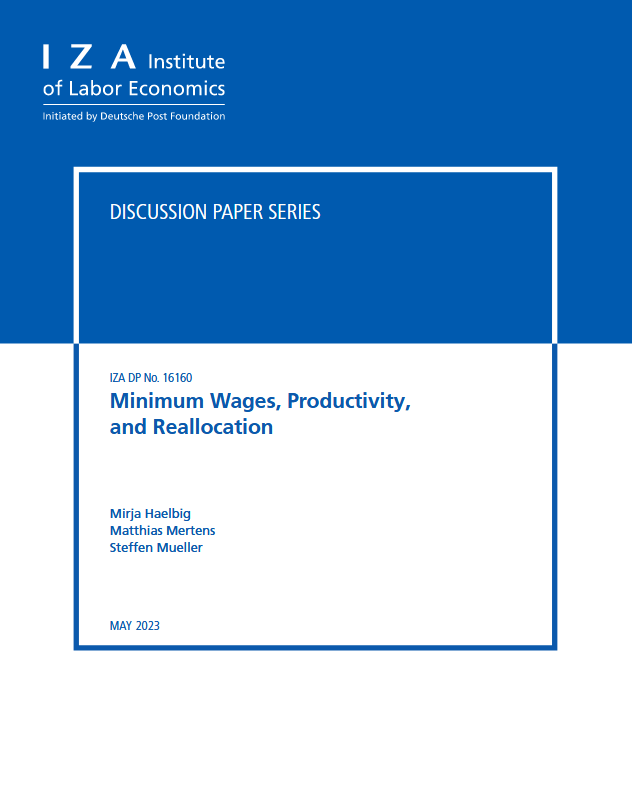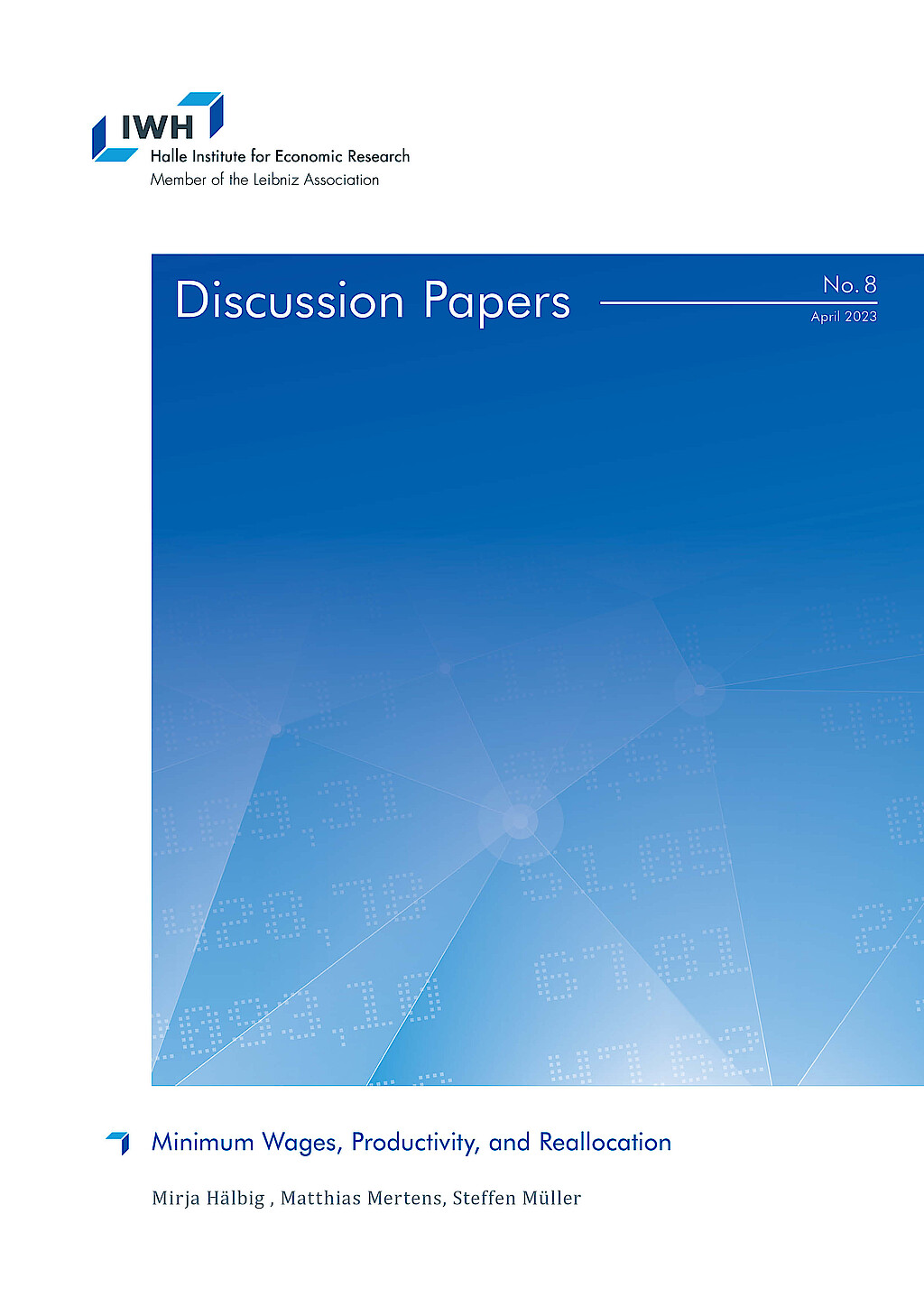Mirja Hälbig

Aktuelle Position
seit 1/25
Wissenschaftliche Mitarbeiterin im Zentrum für Firmen- und Produktivitätsdynamik (IWH-CBPD)
Leibniz-Institut für Wirtschaftsforschung Halle (IWH)
Forschungsschwerpunkte
- empirische Arbeitsmarktökonomik
- empirische Produktivitätsforschung
Mirja Hälbig ist seit Juni 2019 Doktorandin in der Abteilung Strukturwandel und Produktivität und seit Januar 2025 wissenschaftliche Mitarbeiterin im Zentrum für Firmen- und Produktivitätsdynamik (IWH-CBPD). Sie forscht zu den Themen Mindestlohn und Produktivität.
Mirja Hälbig studierte an der Goethe-Universität Frankfurt, der Philipps-Universität Marburg sowie an der Universität Leipzig.






